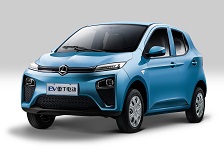Arcadis, in partnership with the World Business Council for Sustainable Development (WBCSD), has released its “Global Charging Infrastructure Market” report listing five factors determining global electric vehicles rollout.
Featuring 21 regions around the world, the report analyzes five parameters to determine how well prepared regions are when it comes to investing in infrastructure to transition to Electric Vehicles (EVs).
The Netherlands consistently emerges top, alongside the UK and California. Sharing well defined strategies for EV infrastructure roll-out, as well as strong tax incentives and a growing volume of public charge points, these frontrunners are setting the tone for mass EV adoption.
As the global EV market evolves, countries need to ramp up investment in charging infrastructure to successfully transition to zero emission vehicles. In the report, 23 metrics across five parameters have been identified as most influential for measuring investment readiness. They have been used to determine what regions are doing well and where they could improve.
The parameters are:
1. Government leadership and incentives
Policy changes and stricter environmental regulations are some of the strongest catalysts for global EV transition.
Hong Kong leads the way, offering tax exemptions, an existing ban on ICE vehicles and penalty charges if driving in low emission zones without meeting required standards. It also has a clear net zero declaration and government budget for charging infrastructure incentives higher than 0.08% of GDP.
2. Electric Vehicles (EV) market maturity and readiness
A region needs to have a mature EV market to support viable investment in charging infrastructure. A mature market is characterized by vehicle affordability, availability of vehicles and ramped-up production capabilities.
Europe leads the way, particularly Norway and the Netherlands. In contrast, many South American countries have room for improvement, such as Argentina, Chile and Mexico, which have less than 2% market share of EVs currently.
3. Returns potential
Utilization is key to stable returns, and it is important to get the balance right between too much infrastructure and low utilization, and under provided infrastructure versus too high utilization, creating “queues at the plug”. Returns potential is also affected by electricity and fossil fuel prices.
Of the regions measured, China is strongest. Europe also performs well, particularly Spain, Norway and the Netherlands.
4. Charging infrastructure
Availability and accessibility of charge points is a major factor in the transition to EVs. This means access to reliable charging at departure (street, garage or driveway), on the road, and the destination.
The Netherlands leads the way, but New York and California also do well. Although the number of charge points are relatively low, both US states will benefit from a clear national strategy, and have reliable power networks. However, New York would benefit from increasing it’s ratio of public charge points, which is currently forecast to be more than 16 vehicles per charge point, compared with California’s ratio of 6-10 cars per point.
5. Ease of doing business
Strong government leadership allied with a robust legal system and regulatory policies, along with strong GDP per capita, demonstrates potential and attractiveness to invest in a growing EV market. The Netherlands, US and Singapore all top the table here.
Simon Swan, Global New Mobility Solutions Director at Arcadis, said: “The Electric Vehicle market is moving quickly, with new charging hubs and technologies becoming available all the time. Accelerating this transition is critical for cutting emissions and limiting the impact of climate change. Widespread EV adoption is key, and even in slower to develop markets, there is progress.”
“This index is a snapshot in time, and regions will improve as they adopt new government incentives, increase their charging infrastructure or as the EV market matures. With clear leadership and the right policies, electric vehicles can play a crucial role in tackling the climate crisis,” says Simon Swan.
The Global Charging Infrastructure Market Report is an expansion of Arcadis’s 2021 Global EV Catalyst Index. The updated report features additional regions, including Norway, Turkey, Hong Kong and South America, and expanded metrics, with the inclusion of ‘ease of doing business’ and ‘returns potential’ categories.
The regions measured are: Netherlands, UK, Germany, Norway, France, Ireland, Italy, Spain, Turkey, Canada, California, New York, China, Hong Kong, Singapore, Australia, Thailand, Chile, Brazil, Mexico, and Argentina.

